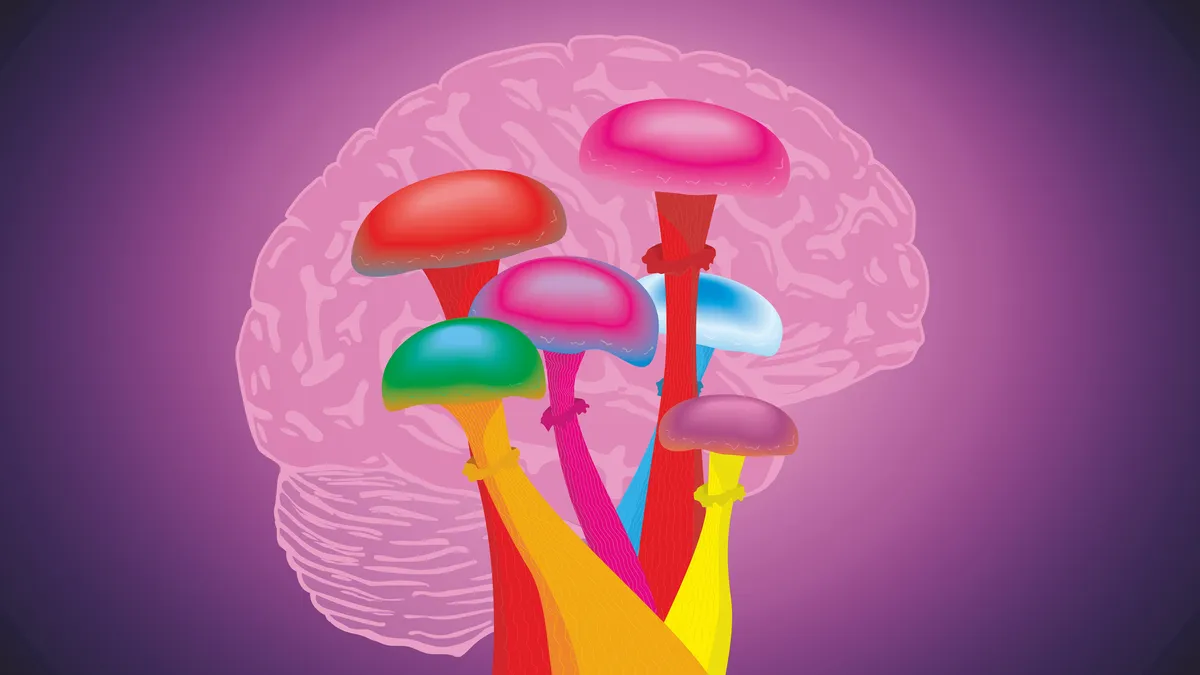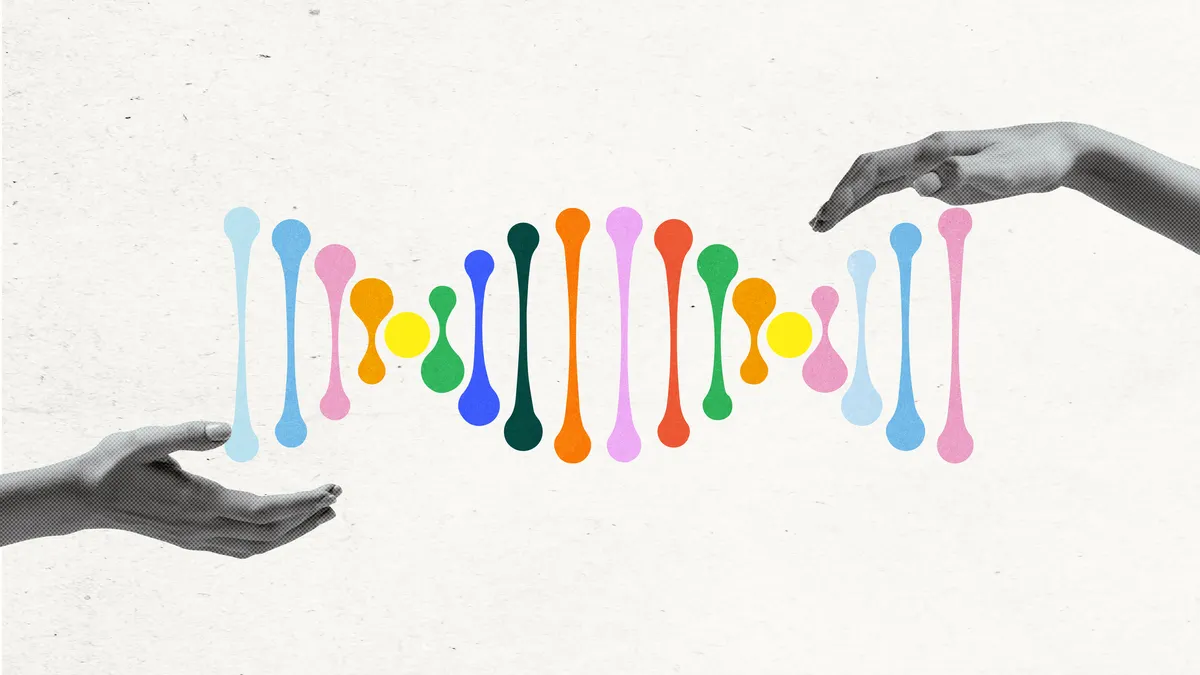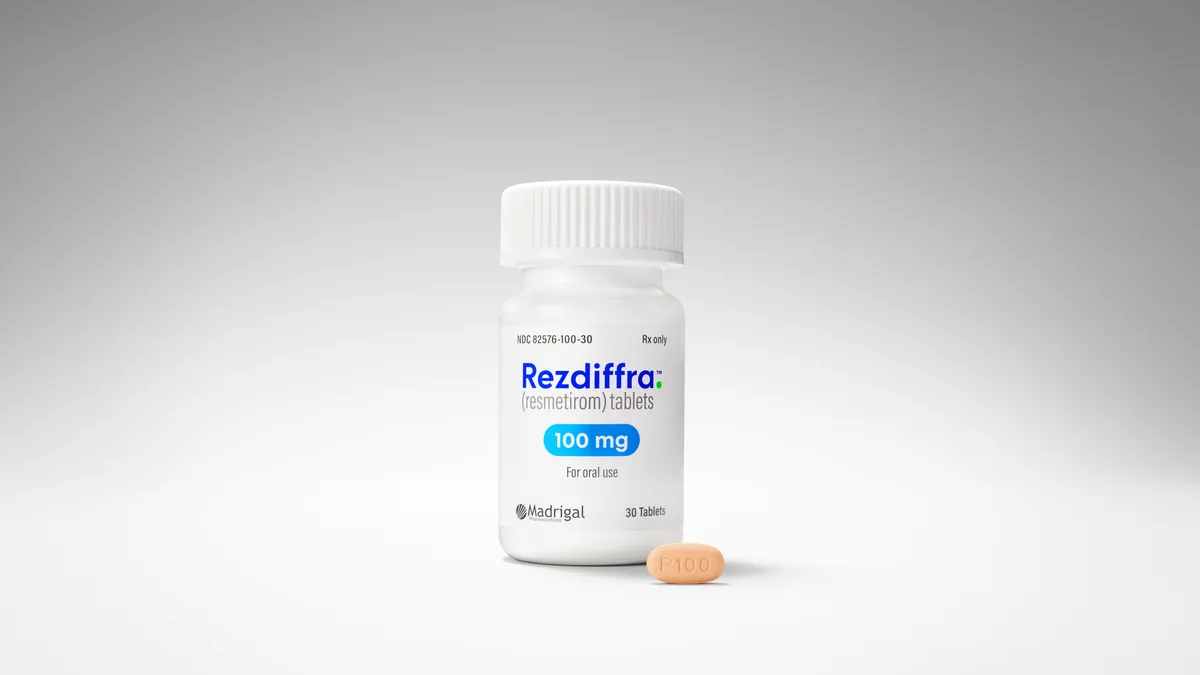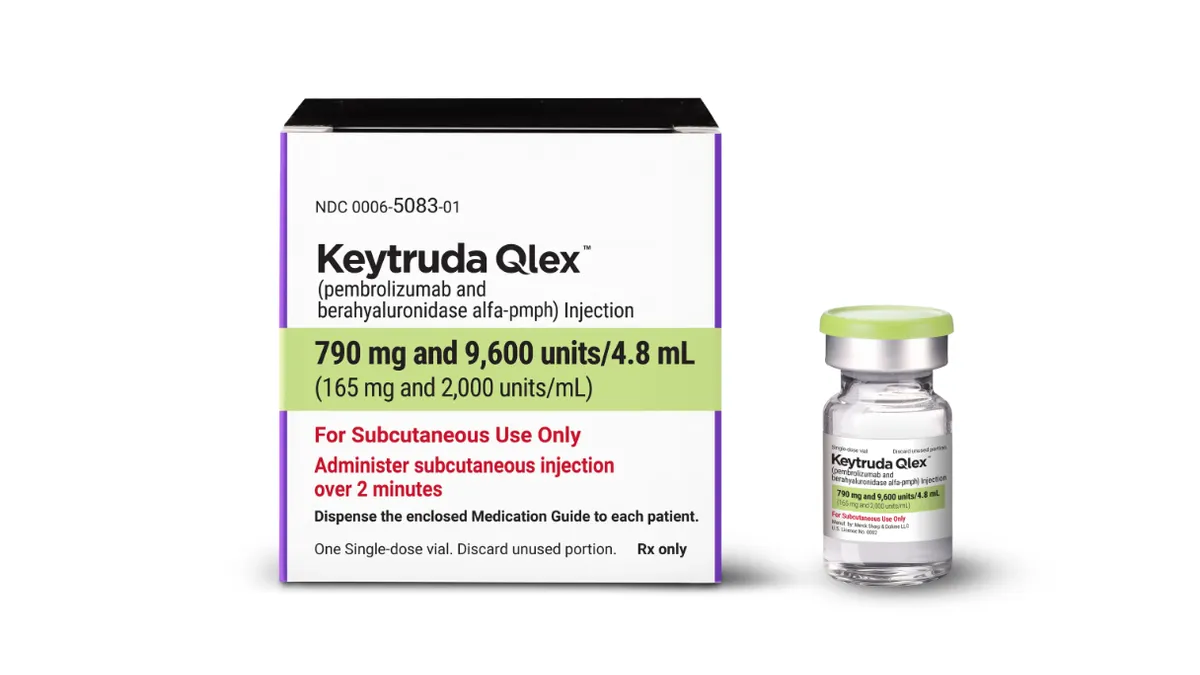During his 20 years as a practicing oncologist, Dr. Manish Agrawal was often frustrated by a glaring treatment gap for depression in his patients’ lives.
“I got good at treating physical symptoms but when it came to quality of life or how they felt, we didn’t have many options,” Agrawal, CEO of Sunstone Therapies, said.
Then, when psilocybin burst onto the R&D scene as a potential new approach for tackling depression, Agrawal saw that it held particular promise in oncology.
“Cancer is the ideal population because patients are facing a life-threatening illness and thinking about why they’re here — they are primed for an intervention that looks directly at this question,” he said. “In my opinion, psychedelics allow people to access places in their minds where they’re stuck.”
Results from a study testing psilocybin in cancer patients suggest Agrawal was on to something.
In April, Compass Pathways, a UK-based company with the most advanced psilocybin candidate in clinical trials — COMP360 — announced the results from a phase 2 study evaluating the treatment in 30 cancer patients with major depressive disorder (MDD). The trial was run by Sunstone, which presented the results earlier this month at the ASCO Annual Meeting.
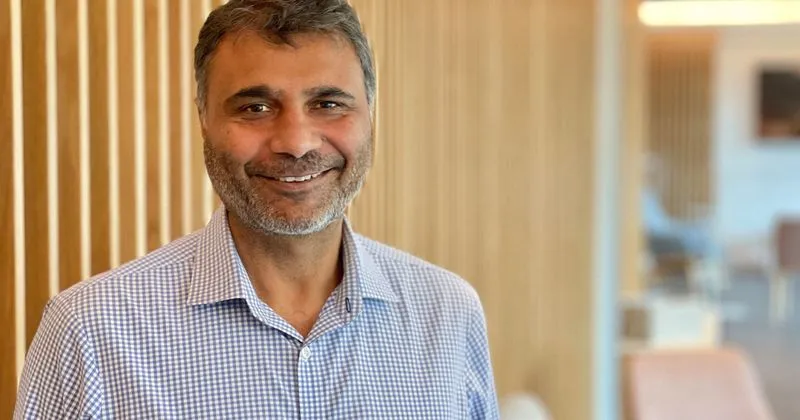
Sunstone, which was launched in 2021 to specialize in research services for psychedelic medicines, led the single-arm trial that gave patients one dose of psilocybin, the active ingredient in “magic mushrooms,” along with individual psychological support and group therapy. About 18 months after their initial dose, 64% showed a “clinical response from baseline” and 57% reported a “remission” of their MDD symptoms.
In a statement, Agrawal heralded the trial, which Compass believes is the “longest clinical study of psilocybin ever conducted,” as being a “first of its kind” and “pioneering” effort that could “open the door to a wider and faster adoption of psilocybin therapy in the future.”
“It was quite remarkable and there are few long-term studies with this kind of data,” Agrawal said.
Now, the focus is on building the positive momentum for future research while ironing out the potential future kinks in a drug launch.
The promise and challenges of psychedelics
The recent investigator-led study by Sunstone is one of several that have trialed COMP360, and a number of others are underway, including a phase 2 for PTSD, a phase 2 for anorexia, and a larger upcoming phase 3 for treatment resistant depression (TRD).
Of course, COMP360 is just one of many therapies being studied in the burgeoning psychedelic-based medicine space. Some of the other well-known startups banking on turning traditional “party drugs” into pharma-style therapies include MindMed, which is developing an LSD candidate for ADHD, an MDMA drug for autism spectrum disorder and more. Atai Life Sciences, meanwhile, is testing an ibogaine-based treatment for opioid use disorder, while ClearMind Medicine has developed a candidate for alcoholism from a psychoactive compound called MEAI. And the list goes on.
While none of these treatments have yet to be evaluated by the FDA for a potential approval, regulators have so far embraced the potential of psychedelics, and gave COMP360 breakthrough therapy designation in 2018. Analysts, meanwhile, have projected that the global psychedelic boom could blossom into a multibillion dollar market within the next decade.
"Psychedelics allow people to access places in their minds where they’re stuck."

Dr. Manish Agrawal
CEO, Sunstone Therapies
Yet, several challenges have emerged in the clinical space for psychedelic drugs, including the potential of a “bad trip” for patients.
In Sunstone’s study, Agrawal said that although a few patients experienced negative side effects such as headache or nausea during the dosing of psilocybin (which typically lasts about six hours), those symptoms were short-lived, and none of the patients had long-term effects.
Now, to help validate the results, Agrawal said Sunstone is planning another phase 2 that this time will be a randomized, double-blind trial comparing COMP360 to a placebo. But Agrawal admitted that it’s difficult to truly blind patients in a trial for psychedelics because of the clear psychoactive effects.
And even if these results ultimately pass muster at the FDA and COMP360 wins approval, commercializing this kind of treatment — which requires specially trained therapists in a specific clinical setting — remains a potential hurdle to widespread access for patients. Which is why Sunstone, which currently has five different trials underway in the psychedelics space, is looking to expand from its research role in the next few years.
Sunstone currently operates one facility in Maryland for clinical trials, but the company is evaluating two more potential sites in different parts of the U.S. where it can ultimately provide research services alongside training, technology and treatment options for patients receiving psychedelic-based therapies. The goal is to open both sites next year.
The psilocybin-oncology connection
Through his background in oncology, Agrawal has been able to better understand what it takes to improve the patient journey in psychedelic medicine.
“The delivery of psychedelic therapy is fairly complicated and is much more analogous to oncology than psychiatry where doctors typically prescribe a therapy after a one-hour visit,” Agrawal explained. “In oncology, we prepare people, assess their needs, look at scans, etc. And then when they come in for chemo, there’s a nurse with them the whole time. So it’s a multi-coordinated care effort with dosing and treatment — similar to the process with psychedelics.”
Agrawal said the psychological particulars of experiencing depression as a cancer patient could also explain why COMP360 performed better in the oncology study than in another recent phase 2 trial of the drug for TRD. The results of that study, which were reported in November, showed that after three weeks just 33% of patients reported an improvement in symptoms and at 12 weeks, the rate of improvement dropped to 20%.
Agrawal attributed this lower rate to the neurological difference between patients with TRD than those with cancer experiencing MDD.
“When you get cancer and become depressed, you’re less likely to have developed the neurological grooves that have been there for years in patients with TRD,” he said.
The results of the recent study also gave Agrawal confidence that psilocybin could work better than SSRIs, the current standard of care for both types of depression. Although estimates vary about the efficacy of SSRIs in cancer patients — one meta-analysis published in 2018 concluded that available studies are “very few and of very low quality” to offer implications for medical practice — Agrawal said they’re about 30% effective in oncology.
And as studies continue to explore the potential efficacy of psilocybin in oncology, Agrawal hopes Sunstone could play a vital role in eventually delivering the treatment to more patients.
“When I look back, I realize that this is what I was made to do. I studied philosophy and was interested in combining that with (medical practice),” he said. “But I realized access is going to be a crucial issue to solve.”



